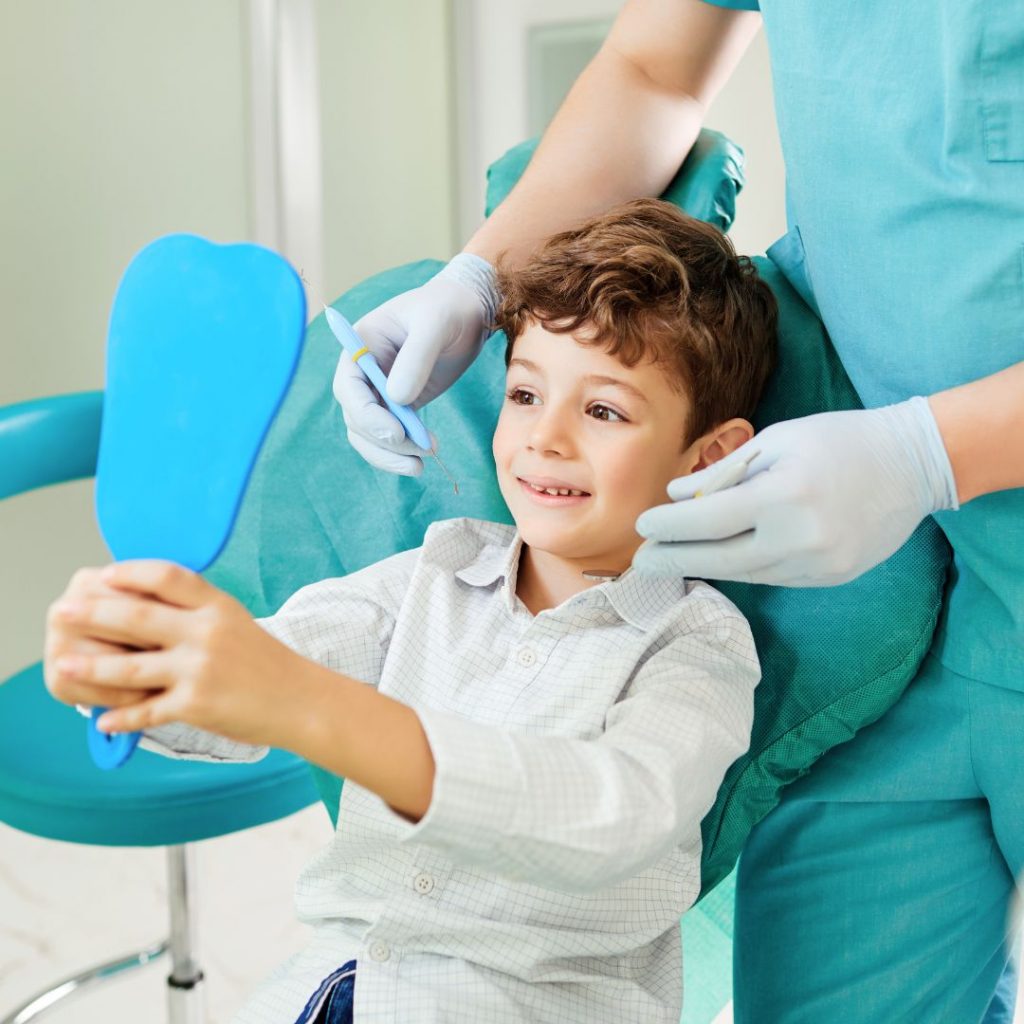It Starts Sooner Than You Think
In fact, more than half of U.S. children have had a cavity by age 8, according to the CDC’s Oral Health Tips for Children.
At Olara Dental, we see it all the time: parents doing their best, but still surprised when their little one ends up with tooth decay. The truth is, baby teeth are more vulnerable than adult teeth — and cavity prevention starts earlier than most people realize.
This guide breaks down exactly how to protect your toddler’s smile, from brushing basics to snack swaps and early dental visits.
Why Toddlers Get Cavities So Easily
Baby teeth have thinner enamel, which makes them more prone to decay. Combine that with frequent snacking, sugary drinks, and inconsistent brushing — and cavities can form fast.
Here’s what makes toddlers especially vulnerable:
- Frequent snacking or sipping (especially juice or milk before bed)
- Incomplete brushing or skipping brushing altogether
- Lack of fluoride in water or toothpaste
- Delayed dental visits — many kids don’t see a dentist until age 3 or later
The good news? Cavities are preventable — and it doesn’t take perfection. Just a few consistent habits can make a big difference.

- Start Brushing Early (Even Before Teeth Come In)
You don’t have to wait for a full set of teeth to start oral care. Begin by wiping your baby’s gums with a soft, damp cloth after feedings. Once the first tooth appears, switch to a soft-bristled baby toothbrush and a tiny smear of fluoride toothpaste (about the size of a grain of rice).
See our Pediatric Dentistry services in Bellaire - Brush Twice a Day — and Help Until Age 6+
Toddlers need help brushing. Even if they love holding the toothbrush, they don’t have the coordination to clean thoroughly.
Use a small, soft brush and a pea-sized amount of fluoride toothpaste once they turn 3. Brush for two minutes, twice a day — especially before bed.
Pro tip: Make it fun. Sing a song, use a timer, or let them “brush” your teeth first. - Skip the Juice and Sticky Snacks
Fruit juice, gummies, raisins, and even crackers can stick to teeth and feed cavity-causing bacteria.
Instead, offer:
- Water (especially fluoridated tap water)
- Fresh fruits and veggies
- Cheese or yogurt
- Whole grain snacks without added sugar
Avoid: - Sippy cups with juice or milk at bedtime
- Gummy vitamins or fruit snacks
- Constant grazing throughout the day
- Don’t Share Germs (Even by Accident)
Cavity-causing bacteria can be passed from parent to child — especially by sharing utensils, cleaning pacifiers with your mouth, or letting toddlers sip from your drink.
Keep toothbrushes separate, and avoid “cleaning” pacifiers with your mouth. - Schedule Their First Dental Visit by Age 1
The American Academy of Pediatric Dentistry recommends a child’s first dental visit by their first birthday — or within 6 months of the first tooth erupting.
At Olara Dental, we make toddler visits fun, gentle, and educational. We’ll check for early signs of decay, talk through brushing techniques, and help your child feel safe and comfortable.
Book your child’s first dental visit - Ask About Fluoride and Sealants
Fluoride strengthens enamel and helps prevent cavities. If your child doesn’t drink fluoridated tap water, we may recommend fluoride varnish or supplements.
For older toddlers and preschoolers, we may also suggest dental sealants — a protective coating applied to molars to block bacteria and food particles. - Make Dental Visits Routine
Regular checkups every 6 months help us catch small issues before they become big problems. They also help your child build trust with their dentist — so future visits feel normal, not scary.
We offer weekend appointments and a warm, family-friendly environment to make visits easy for busy Bellaire parents.

FAQs About Toddler Cavities
Are baby teeth really that important?
Yes! Baby teeth help your child chew, speak, and hold space for adult teeth. Untreated cavities can lead to pain, infections, and long-term dental issues, according to HealthyChildren.org, a resource from the American Academy of Pediatrics.
What if my toddler hates brushing?
You’re not alone. Try brushing together, using a fun toothbrush, or letting them choose their toothpaste flavor. Consistency is key — even if it’s a struggle at first.
Can cavities in baby teeth affect adult teeth?
Yes. Severe decay in baby teeth can damage developing adult teeth or lead to early tooth loss, which affects spacing and alignment.
Final Thoughts: It’s Not About Perfection — It’s About Progress
Preventing cavities in toddlers isn’t about doing everything perfectly. It’s about building small, consistent habits that protect your child’s smile for life.
At Olara Dental, we’re here to support Bellaire families with gentle care, real-world tips, and a judgment-free approach. Whether it’s your child’s first visit or their fifth, we’ll make it a positive experience.
Schedule your toddler’s dental checkup today

